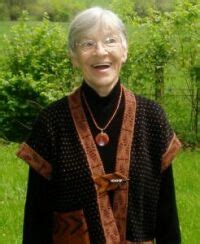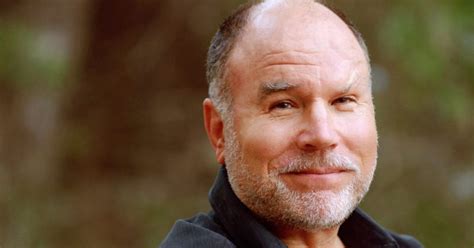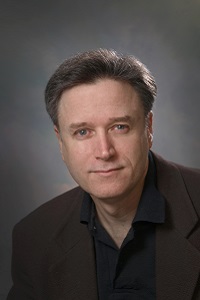A Quote by Rollo May
The daimonic refers to the power of nature rather than the superego, and is beyond good and evil. Nor is it man's 'recall to himself' as Heidegger and later Fromm have argued, for its source lies in those realms where the self is rooted in natural forces which go beyond the self and are felt as the grasp of fate upon us. The daimonic arises from the ground of being rather than the self as such.
Related Quotes
This journey then, is nothing more, yet nothing less than a period of acclimating to a new way of seeing, a time of transition and revelation as it gradually comes upon "that" which remains when there is no self. this is not a journey for those who expect love and bliss, rather, it is for the hardy who have been tried by fire and have come to rest in a tough, immovable trust in "that" which lies beyond the known, beyond the self, beyond union and even beyond love and trust itself
Integrity is unity of the personality; it implies being brutally honest with ourselves about our intentionality. Since intentionality is inextricably bound up with the daimonic, this is never an easy, nor always pleasant pursuit. But being willing to admit our daimonic tendencies - to know them consciously and to wisely oversee them - brings with it the invaluable blessing of freedom, vigor, inner strength, and self-acceptance.
As a mode of perception that often becomes a style of life, paranoia weaves around the vulnerable self or group an air-tight metaphysic and world view. Paranoia is an antireligious mysticism based on the feeling or perception that the world in general, and others in particular, are against me or us. Reality is perceived as hostile. By contrast, the religious mystic experiences the ground of being as basically friendly to the deepest needs of the self. That which is unknown, strange, or beyond our comprehension is with and for rather than against us.
It is not merely the brevity by which the haiku isolates a particular group of phenomena from all the rest; nor its suggestiveness, through which it reveals a whole world of experience. It is not only in its remarkable use of the season word, by which it gives us a feeling of a quarter of the year; nor its faint all-pervading humour. Its peculiar quality is its self-effacing, self-annihilative nature, by which it enables us, more than any other form of literature, to grasp the thing-in-itself.
Naturalism is the view that the physical world is a self-contained system that works by blind, unbroken natural laws. Naturalism doesn't come right out and say there's nothing beyond nature. Rather, it says that nothing beyond nature could have any conceivable relevance to what happens in nature. Naturalism's answer to theism is not atheism but benign neglect. People are welcome to believe in God, though not a God who makes a difference in the natural order.
The abbot told me once that lying was a betrayal to one's self. It's evidence of self-loathing. You see, when you are so ashamed of your actions, thoughts, or intentions, you lie to hide it rather than accept yourself for who you really are. The idea of how others see you becomes more important than the reality of you. It's like when a man would rather die than be thought of as a coward. His life is not as important to him as his reputation. In the end, who is the braver? The man who dies rather than be thought of as a coward or the man who lives willing to face who he really is?
I am firmly convinced, as I have already said, that to effect any great social improvement, it is sympathy rather than self-interest, the sense of duty rather than the desire for self-advancement, that must be appealed to. Envy is akin to admiration, and it is the admiration that the rich and powerful excite which secures the perpetuation of aristocracies.
The havoc wrought by war, which one compares with the havoc wrought by nature, is not an unavoidable fate before which man stands helpless. The natural forces that are the cause of war are human passions, which it lies in our power to change. What are culture and civilization if not the taming of blind forces within us as well as in nature?
......at this point the self has obviously outworn its function; it is no longer needed or useful, and life can go on without it. we are ready to move on, to go beyond the self, beyond even its most intimate union with God, and this is where we enter yet another new life- a life best categorized, perhaps, as a life without a self.


































